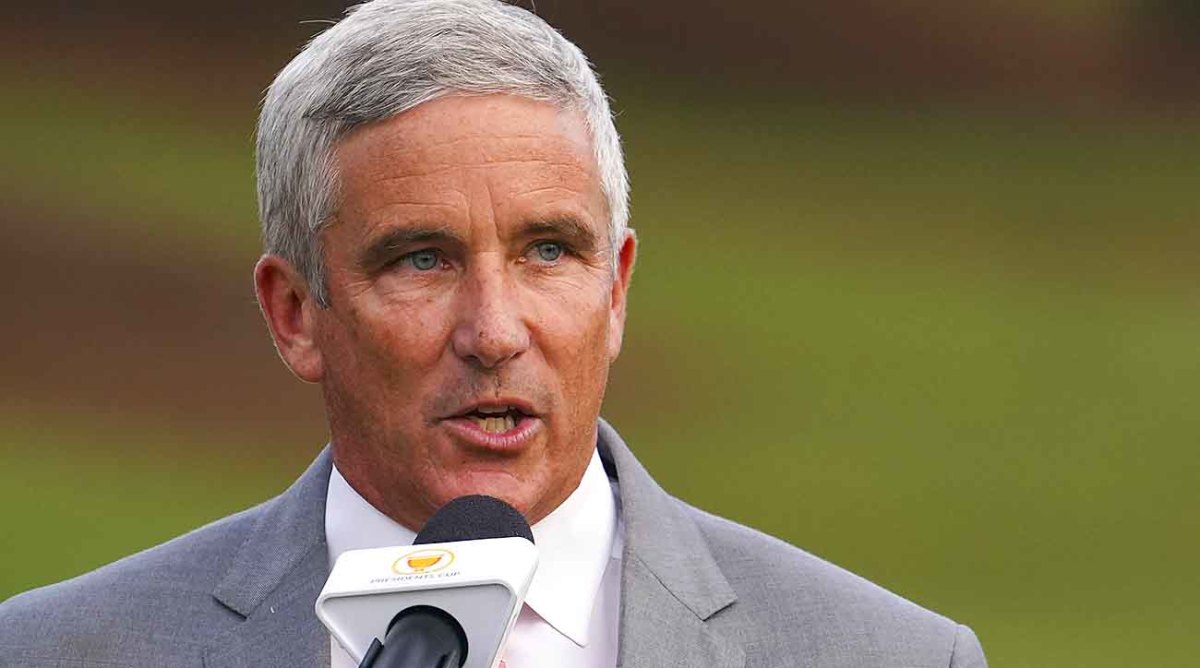It’s Time for Cooler Heads to Prevail in Battle Between PGA Tour and LIV Golf

It’s Friday, Oct. 7, 2022, and we have officially entered the realm of professional golf dodgeball.
With the MENA Tour—yes, the MENA Tour—becoming the latest to jump into the PGA Tour/LIV Golf/Official World Golf Ranking quagmire, it’s time to say enough.
The MENA Tour, created in 2011 to promote golf in the Middle East and North Africa, was initially supported by golf’s major stakeholders, including the Shaikh Maktoum Golf Foundation, which financially backed the tour.
MENA’s focus has been very limited, and, while they have OWGR status, it is clearly a developmental tour, not one with the stature of the PGA Tour or DP World Tour.
How did we get to a point when an obscure tour in the Middle East has found a way to become involved now with the big boys of golf?
Before this week in Bangkok, MENA’s last event was the Blue Canyon Open in May 2020, which offered a purse of $75,000. The winner, Settee Prakongvech of Thailand won $13,500 in the 54-hole event tournament. That week in Thailand, 48th place earned $400.
This week’s MENA event is also in Thailand, now that it has signed a strategic alliance with LIV Golf. The purse is $20 million. The winner will receive $4 million, and 48th place will receive $128,000.
This week’s purse may be more than all of MENA’s combined prize money since its inception.
You certainly can’t blame MENA for agreeing to be a pawn in the chess game between the PGA Tour and DP World Tour, and LIV Golf.
At what point will the PGA Tour, DP World Tour, LIV Golf, Asian Tour and now MENA Tour realize that their actions are not growing the game of golf, but taking it down a rabbit hole that becomes harder and harder to emerge from?
Which brings another question: Where are the adults in golf?
PGA Tour commissioner Jay Monahan is the CEO of a multimillion-dollar business, so he’s accustomed to fielding offers from different groups looking to work with the largest men’s tour in the world. Most of those groups will likely never get in front of Monahan himself.
When the PGA Tour was approached numerous times by LIV Golf, Greg Norman and others who are involved with the PIF, the Saudi Sovereign Investment Fund that backs LIV Golf, Monahan never met with them.
I’ve spoken to many individuals in and around the industry, and that decision to not meet with LIV, and Monahan’s continued intransigence, appears misguided. Many shake their heads and wonder why Monahan doesn’t become the adult in the room and start talking.
He didn’t have to speak with Norman, who is persona non grata in Ponte Vedra Beach, but a Tour deputy could have acted as point person. The Tour could have said, yes, we will talk, but not with Norman. LIV Golf has plenty of capable executives, many were previously involved with golf and familiar to the PGA Tour, and they would be a suitable substitute for Norman.
But that never happened, and now golf’s battle has spread to both the media and the courts.
So, what’s the endgame?

One year ago golf was at a high point, with revenue up, participation up and signs pointing to steady growth. The LIV Golf idea was considered a joke by many in professional golf, a venture that would add nothing to a product that was thriving.
Today LIV Golf is poised to hang around, assuming the PIF is willing to continue to fund it.
I’ve spoken to some at the PIF and they sound committed. They’re in it for the long haul. Many in golf are still holding onto a thread of hope that Mohammed bin Salman Al Saud, or M.B.S., the leader of Saudi Arabia and the chairman of the PIF, will lose interest and pull funding for Greg Norman’s grand plan. But my sources say M.B.S. would never lose face and give in.
How the PGA Tour and LIV Golf Tour could end their conflict
Since LIV looks here to stay, that leaves one remaining option: negotiated peace.
In reality, it doesn’t even have to be negotiated. It could just happen.
Cooler heads on both sides could ratchet down the rhetoric and agree to disagree. They can move toward conciliation or appeasement without talking directly to each other.
The PGA Tour could allow LIV golfers who are eligible to play on the PGA Tour to participate. Some players have already given up their membership, and unless they qualify in some other way or are provided sponsor’s exemptions, they have no status. Seems fair to keep them out. Same goes for the DP World Tour: CEO Keith Pelley should let them play if eligible.
Quickly those players, and any additional players who leave the Tour, will lose their PGA Tour eligibility, and one of Monahan’s primary goals will be achieved.
At the same time, LIV Golf could drop its antitrust lawsuit and the Tour could drop its countersuit, which is surely costing both sides hefty attorney’s fees.
Ending the war would also allow all sides to hunker down for the next economic downturn. The 2023 economic forecast calls for a recession of unknown proportions.
How the Official World Golf Ranking should proceed with LIV Golf
The elephant in the room remains the Official World Golf Ranking (OWGR). It’s almost comical that this has become such a battleground.
The OWGR was established with a mission to administer and publish, on a weekly basis, a transparent, credible and accurate ranking based on the relative performances of players participating in men’s golf tours worldwide.
Many of the players who are part of LIV Golf have been, or recently were, among the top 50 players in the ranking.
Recent British Open winner Cam Smith is currently No. 3 in the world and would likely be No. 2 if his performances in his two LIV events, including a three-shot win at Rich Harvest Farms outside of Chicago, were factored in the ranking. But LIV events aren’t part of the OWGR.
The OWGR governing board includes representatives of the four majors, plus Monahan and Pelley—who are essentially overseeing whether LIV Golf receives OWGR eligibility and whether MENA’s current strategic alliance allows for its new partner to receive OWGR points.
In no rational world would anyone consider that fair. How do you have an accurate ranking system if some of the best players in the world are excluded?
If you’re on the board with a mission statement that has a goal of credible and accurate rankings for professional golf, then you are required to look toward the greater good.
At the same time, because LIV is a 54-hole tour, with no cut and only 48 players in the fields, OWGR points for LIV players would have to be reduced compared to other 72-hole stroke play tours.
It seems the best way for OWGR to execute its mandate of a transparent, credible and accurate ranking based on the relative performances of players, is to grant OWGR points to LIV either through MENA, which could happen immediately, or through expediting the review of the LIV application submitted by the Asian Tour this summer.
It’s time for the leaders of golf to force the issue. Fred Ridley, Seth Waugh, Mike Whan and Martin Slumbers can act as back channels among the PGA Tour, DP World Tour and LIV Golf to find a solution that all will not necessarily like, but can live with.
Then golfers, and golf fans, can get back to birdies and bogeys, the way it should be.
